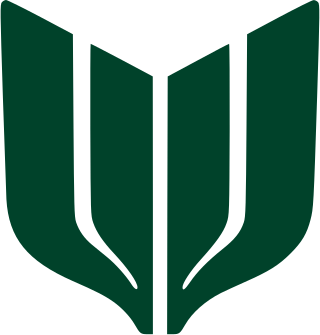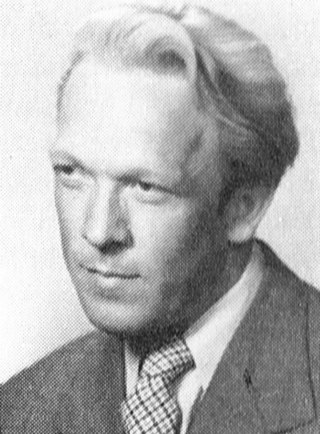Bevillinger
| | This section is empty. You can help by adding to it. (February 2024) |
Peter Nedergaard | |
|---|---|
| Born | Peter Petersen Nedergaard 31 October 1957 |
| Academic background | |
| Alma mater | Institut for Statskundskab, Århus, Denmark |
| Thesis | EF og mælken: en analyse af landbrugspolitikkens etablering, udvikling, problemer og tilpasning som baggrund for indførelsen af en mælkekvoteordning i EF (1985) |
| Academic work | |
| Institutions | University of Copenhagen |
| Main interests | Political science |
Peter Nedergaard (born 31 October 1957 [1] ) is a Danish professor of political science who has been employed at the Department of Political Science at the University of Copenhagen since 2008. Peter Nedergaard is member of the Order of Dannebrog. [2]
| | This section is empty. You can help by adding to it. (February 2024) |
In 1985 Peter Nedergaard obtained the title of Master of Science in Political Science. He later earned a PhD from the Institut for Statskundskab, Århus, Denmark [3] and an Exam.Art. in Philosophy. In 1983-84, Peter Nedergaard was a Robert Schuman research fellow in the research department of the European Parliament in Luxembourg and a stagiaire in the cabinet of agricultural commissioner, Poul Dalsager, in Brussels.
Peter Nedergaard has previously been affiliated with the Copenhagen Business School as associate professor, assistant professor and finally as professor with special responsibilities. For a few years he left the academic world, instead working as head of unit in the Danish Ministry of Employment during the Danish EU Presidency in 2002. Peter Nedergaard's research covers European policy and European integration with special attention to business policy, internal market policy, climate policy, agricultural policy and employment policy. In 2007, he was a visiting scholar at Stanford University.
Peter Nedergaard's research has been published in international scientific journals such as the Journal of Common Market Studies , Journal of European Public Policy , Public Choice , Journal of European Integration , Scandinavian Political Studies , Cooperation and Conflict and Policy Studies . In addition, he has published a number of textbooks for high schools and universities on inter alia theory of science, European policy and the economics and politics of China, the USA, Germany and the EU.
Alongside his work as a researcher, Peter Nedergaard has been a member of several boards, councils and commissions, including the Mortgage Credit Complaint Board, the Complaint Board of Banking Services, the Suffrage Commission and the committee on liability of financial advisers. In 1992-2009 he was the executive editor of the Danish scientific journal Økonomi & Politik.
Peter Nedergaard is a reviewer for several international research foundations and journals. He is also a prolific columnist and often appears in the media as a political expert and commentator. In 2018, he was ranked as the second-most cited scientist at the University of Copenhagen by Uniavisen.
Peter Nedergaard is initiator to the so-called Erik Rasmussen Prize, which is given to a researcher in Political Science by the Danish Society of Political Science. The Prize is the highest prize within Political Science in Denmark, and it is named after the “founding father” of Political Science in Denmark, Professor Erik Rasmussen, who established the Department of Political Science at University of Aarhus in the beginning of the 1960s.
Peter Nedergaard is also the initiator to the publication of the "Routledge Handbook of the Politics of Brexit", published in 2018 with Professor Ben Rosamond and Associate Professor Patrick Diamond as co-editors. In addition, Peter Nedergaard is the initiator of the preparation of the "Oxford Handbook of Danish Politics", published at Oxford University Press in 2020, which is the most comprehensive international work on Danish politics so far. Professor Peter Munk Christiansen and Professor Jørgen Elklit are co-editors on this publication. In 2022, Peter Nedergaard also published the "Oxford Handbook of Ordoliberalism" at Oxford University Press together with professor Werner Bonefeld and Professor Thomas Biebricher.
A trade union or labor union, often simply referred to as a union, is an organization of workers whose purpose is to maintain or improve the conditions of their employment, such as attaining better wages and benefits, improving working conditions, improving safety standards, establishing complaint procedures, developing rules governing status of employees and protecting and increasing the bargaining power of workers.
The National Coalition Party is a largely liberal-conservative political party in Finland.

Venstre, full name Venstre, Danmarks Liberale Parti, is a conservative-liberal, agrarian political party in Denmark. Founded as part of a peasants' movement against the landed aristocracy, today it espouses an economically liberal, pro-free-market ideology.

The Danish People's Party is a nationalist and right-wing populist political party in Denmark. It was formed in 1995 by former members of the Progress Party (FrP).

The Progressive Party is an agrarian political party in Iceland.
Ordoliberalism is the German variant of economic liberalism that emphasizes the need for government to ensure that the free market produces results close to its theoretical potential but does not advocate for a welfare state.
Liberal conservatism is a political ideology combining conservative policies with liberal stances, especially on economic issues but also on social and ethical matters, representing a brand of political conservatism strongly influenced by liberalism.
In general, liberalism in Europe is a political movement that supports a broad tradition of individual liberties and constitutionally-limited and democratically accountable government. These European derivatives of classical liberalism are found in centrist movements and parties as well as some parties on the centre-left and the centre-right.
The Anglo-Saxon model is a regulated market-based economic model that emerged in the 1970s based on the Chicago school of economics, spearheaded in the 1980s in the United States by the economics of then President Ronald Reagan, and reinforced in the United Kingdom by then Prime Minister Margaret Thatcher. However, its origins are said to date to the 18th century in the United Kingdom and the ideas of the classical economist Adam Smith.

The official title President of the European Union does not exist, but there are a number of presidents of European Union institutions, including:
Maria Sigrid Astrid Borelius is a Swedish born former Minister for Foreign Trade, Science journalist and entrepreneur, working as advisor to global companies, academies and institutions. Maria is a member of the advisory council of Open Europe, a European think tank with offices in London, Brussels and Berlin promoting ideas for economic and political reform of the European Union. Maria is also a Partner with Living Waters, a London-based consultancy focusing on CSR, public affairs and developing fundraising strategies. She is an advisor to the Karolinska Institute, which awards the Nobel prize in medicine, and to Lund University and works as a columnist with the Swedish business daily, Dagens Industri, mainly covering areas of Entrepreneurship, Science, research, globalization and politics.
The Nordic agrarian parties, also referred to as Scandinavian agrarian parties or agrarian liberal parties, are agrarian political parties that belong to a political tradition particular to the Nordic countries. Positioning themselves in the centre of the political spectrum, but fulfilling roles distinctive to Nordic countries, they remain hard to classify by conventional political ideology.

The Nordic model comprises the economic and social policies as well as typical cultural practices common in the Nordic countries. This includes a comprehensive welfare state and multi-level collective bargaining based on the economic foundations of social corporatism, and a commitment to private ownership within a market-based mixed economy—with Norway being a partial exception due to a large number of state-owned enterprises and state ownership in publicly listed firms.
The Icelandic "outvasion" was the period in the economic history of Iceland between 2000 and the onset of its financial crisis in October 2008. With the privatisation of the Icelandic banks being advantageous for investors, there was a large supply of cheap loan capital on the international market. A clause in the agreement with the European Economic Area stipulated the free flow of capital to and from Iceland.
Sieglinde Gstöhl is an academic from Liechtenstein.

Brigitte Young, is Professor Emeritus of International political economy at the Institute of Political Science, University of Münster, Germany. Her research areas include economic globalization, global governance, feminist economics, international trade, global financial market governance and monetary policy. She has worked on EU-US financial regulatory frameworks, European economic and monetary integration and heterodox economic theories. She is the author of many journal articles and books in English and German on the Global financial crisis of 2008–2009, the US Subprime mortgage crisis, the European sovereign-debt crisis, and the role of Germany and France in resolving the Euro crisis.
Det fri Aktuelt was a daily newspaper published in Copenhagen, Denmark, between 1871 and 2001. It was the first socialist and the earliest newspaper published by a labor union in the world. In addition, it was the last major social democrat newspaper in Denmark.
Angela Wigger is a political economist at the Political Science department at the Radboud University in the Netherlands.
Drude Dahlerup is a Danish-Swedish professor of Political Science at Stockholm University. Her main research area is gender and politics. She is an international consultant on the empowerment of women in politics and a specialist on the implementation of gender quota systems. Spokesperson for the EU-critical center-left June Movement during four Danish referendums in the 1990s.

Sture Henriksson (1917–1957) was a Swedish trade unionist, ombudsman and social democrat politician who killed himself in 1957 while serving as the minister of communications.